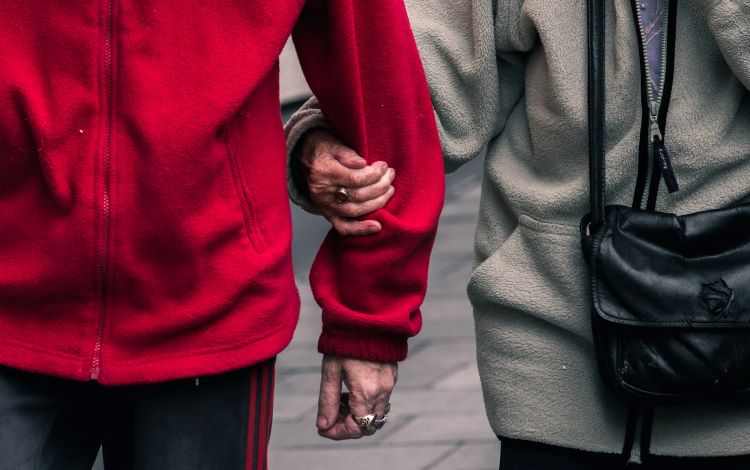Drug & Alcohol Rehab in Urmston
If you think that you or someone you know is suffering from an addiction to either drugs or alcohol, then the first thing you need to do is educate yourself so that you understand your addiction and all that it brings.
When most people hear the word ‘addiction’ they think they know what it means. Most people tend to stereotype people with addiction issues and think that they know what it’s like to suffer from an addiction.
However, the reality is that no one really knows what it is like to suffer from an addiction unless you have suffered from addiction issues yourself, or have watched someone close to you suffer.
Addictions are not straight forward, and there’s a lot to learn and understand addiction.
This is really important to do if you or someone you know is suffering from an addiction issue, as people are only really likely to be able to overcome their addiction issues if they understand their addiction.
Start your recovery journey today by calling our expert team to access drug & alcohol rehab in Urmston on 0800 088 66 86
What is an addiction?

An addiction is when someone craves a drug or substance so intensely that they are unable to control their use.
Most people who are addicted to drugs and alcohol tend to continue to abuse the substance(s) even after realising and understanding that their addiction is doing harm to themselves and to those around them as well.
It is important to look at addiction as a disease of the brain. This is because when an individual abuses drugs and other substances, the chemicals in the substances change the chemistry of their brain.
It does this by changing the way that the brain understands and responds to pleasure. It then also reduces the brain’s ability to think normally and make responsible decisions.
Addiction changes the brain in three main different ways. Firstly, it increases the individual’s cravings and tolerance for the addictive substance(s), it changes the way that the brain is able to control its use, and finally, it makes it extremely hard to quit using the addictive substance.
There are many different reasons why people become addicted to drugs and other substances, such as alcohol. Some of these reasons include things such as trauma, being surrounded by other people who abuse drugs and substances and suffering from mental health issues.
Whilst the general public tends to stereotype people with addiction issues, in reality, anyone can become addicted to drugs or other substances. Addiction does not discriminate, and it is important to understand that anyone can become addicted to drugs or alcohol, despite their gender, age or social demographic.
Who is likely to suffer from addiction issues?

According to the United Nations, it is estimated that a total of 271 million people across the world (which is approximately 5.5% of the total global population of adults aged under 64 years old) have abused drugs or other substances recently [1].
As discussed above, anyone can become addicted to drugs or alcohol. Whilst a lot of people tend to stereotype people with addiction issues, it is important to understand that it can become easy to become addicted to certain substances, sometimes without you even realising it.
However, there are a number of common factors that might make it more likely for someone to become addicted to drugs or alcohol. For example, you are a lot more likely to suffer from addiction issues if you have grown up in an environment surrounded by drug and alcohol abuse.
You are also more likely to suffer from a drug or alcohol addiction if a parent or guardian has abused drugs or alcohol as you grew up. You are also more likely to become addicted to certain substances if you start abusing them at a young age or if you suffer from a mental health issue or experience some trauma at some point during your life.
Whilst it is easy to stereotype people with addiction issues, it is important to keep an open mind and understand that in reality, there are many reasons why someone might become addicted to drugs or other substances. Likewise, it is also important to look at addiction as a disease, and not a moral failing.
If you think that you are suffering from an addiction to drugs or alcohol, then you might need to attend inpatient or outpatient drug and alcohol rehab in Urmston in order to successfully recover.
Start your recovery journey today by calling our expert team to access drug & alcohol rehab in Urmston on 0800 088 66 86
What is a dual diagnosis and how do you treat it?

A dual diagnosis is when someone suffers from an addiction issue alongside an addiction to drugs or other substances. Unfortunately, this is very common when it comes to addiction issues.
A dual diagnosis is really common with rehab centres, and certain studies have revealed that 50% of all individuals with addiction issues also suffer from mental health issues.
It is very common for people who suffer from addiction to suffer from some kind of mental health issue. This is usually because lots of people who suffer from addiction issues develop mental health issue due to their substance abuse.
Likewise, lots of people who already suffer from mental health issues abuse drugs and other substances in an attempt to overcome their addiction issues and escape the suffering.
For this reason, many professionals argue that dual diagnosis is a bit like chicken and egg. Many people find it hard to distinguish what came first, and whether individuals have developed an addiction issue as a result of their mental health issues, or vice versa.
This is why a dual diagnosis can be slightly difficult to treat, and will mean that you have to invest a bit more time into your recovery. Once you are diagnosed with a dual diagnosis, you will be admitted into a drug and alcohol rehab centre, and will be treated for both conditions alongside each other.
What causes dual diagnosis?

There are a number of causes when it comes to a dual diagnosis. Therapists and other doctors have a number of theories when it comes to what might cause or lead to a dual diagnosis, listing them as causes and risk factors.
For example, professionals have now determined that people are more likely to become addicted to drugs or other substances and suffer from mental health issues if their parents suffered, too. Genetics plays a huge role in your overall health, and this is no different when it comes to addiction and mental health issues.
Likewise, a similar argument could be made for environmental factors. This includes the environment in which you grew up, and whether you have experienced any stress or trauma. Unfortunately, just like genetics, these things are often passed down through generations.
What are the symptoms of a dual diagnosis?

If you are worried that you or someone that you know is suffering from a dual diagnosis, then it is important to understand the symptoms and get the help that you need.
There are a number of different warning signs and symptoms of a dual diagnosis. These symptoms differ depending on what type of substance you are addicted to, and what type of mental health issue you are suffering from.
Some of these warning signs and symptoms are listed below:
- Struggling to control your behaviour and your substance use
- Withdrawing from spending time with friends and family members
- Mood swings
- Severe changes to their behaviour and personality
- Engaging in risky and dangerous behaviours
- Struggling to maintain your focus and motivation
- An increased tolerance when it comes to addictive substances
- Feeling confused
- Struggling to function day to day
- Running late for work or other commitments
- Arguing with family and friends
- Contemplating or attempting suicide
If you or someone that you know is suffering from a dual diagnosis, then it is incredibly important to get help and support for your addiction and mental health issues. Mental health and addiction issues do not go away by themselves, and you will require a lot of help, support and therapy in order to overcome your dual diagnosis.
Speak to a member of our team at Rehab Recovery for more information on how to attend drug and alcohol rehab in Urmston.
Start your recovery journey today by calling our expert team to access drug & alcohol rehab in Urmston on 0800 088 66 86
Medically-assisted detox treatment

If you suffer from an addiction to a physically addictive drug, meaning that your body is physically dependent on the addictive substance, then you will have to undergo a medically assisted detox in order to recover.
A medically associated detox is when you withdraw from taking and abusing the addictive substance for a number of days or weeks, in order to overcome your cravings. From this moment on, you will not be able to consume the addictive substance again.
If you suffer from a particularly addictive substance, then you will be required to withdraw from the addictive substance slowly, so that you do not overwhelm your body. It is very easy to overwhelm your body when you are addicted to certain substances, which is why it is important to withdraw gradually.
This might mean that you have to withdraw over a number of weeks and take less and less of the addictive substance each day. This is a safe way to detox, and it is important that you detox in a safe and controlled environment.
This is because when you withdraw from taking an addictive substance, you are highly likely to experience a range of withdrawal symptoms. These withdrawal symptoms can be incredibly uncomfortable and unpleasant and make it extremely hard for individuals to stay motivated and in control during the withdrawal and detox process.
Below is a list of some of the most common withdrawal symptoms [2]:
- Feeling sick
- Feeling anxious
- Feeling depressed
- Shaking
- Upset stomach
- Fatigue
- Sweating
- Body aches
- Brain fog
- Confused
- Feeling irritated
- Diarrhoea
As you can see, these withdrawal symptoms can be incredibly uncomfortable and at times, scary. This is why you should never attempt to withdraw at home unless your doctors think that you are eligible for a home detox. Detoxing at home, without your doctors knowing, could be putting your life at risk.
If you think that you need to attend drug and alcohol rehab in Urmston in order to safely detox from an addictive substance, then speak to our team at Rehab Recovery.
What’s the difference between inpatient and outpatient rehab in Urmston?

If you require drug and alcohol rehab in Urmston, then you will be given the choice between attending inpatient and outpatient rehab treatment. If you suffer from a severe addiction, then you will most likely be admitted into inpatient rehab treatment.
If your addiction is less severe, then you will most likely be admitted into outpatient drug and alcohol rehab in Urmston.
Inpatient drug and alcohol rehab in Urmston is when you are admitted into a rehab centre for a specific period of time. Depending on the severity of your addiction, you will be admitted into inpatient rehab treatment for a few weeks or even sometimes a few months.
During your time in inpatient drug and alcohol rehab in Urmston, you will eat and sleep within the rehab facility. You will also receive therapy and other treatment every day and will be given the chance to see visitors on a regular basis if this encourages your recovery. You will also undergo your detox in the rehab facility.
If your addiction is less severe, and you are able to recover in the comfort of your own home, then you will be considered for outpatient drug and alcohol rehab in Urmston.
During outpatient drug and alcohol rehab in Urmston you will remain living at home, attending work and continuing your day-to-day life as usual. The only difference is that you will attend a local rehab centre on a regular basis to undergo your treatment.
If you are confused as to whether you should opt for inpatient or outpatient drug and alcohol rehab in Urmston, then you should speak to a member of the Rehab Recovery team for advice and support.
Start your recovery journey today by calling our expert team to access drug & alcohol rehab in Urmston on 0800 088 66 86
Aftercare support after drug and alcohol rehab in Urmston

Achieving recovery is a huge achievement. By undergoing therapy and getting your body and mind to a happy and healthier place, you have improved the quality of your life significantly.
Nevertheless, it is important to understand that your recovery and treatment do not end after undergoing therapy and leaving your rehab treatment plan. In order to maintain your recovery and sobriety, you will have to undergo a range of aftercare sessions and treatment plans.
Aftercare is a long-term treatment and is offered to everyone who leaves inpatient and outpatient treatment care. You might undergo aftercare treatment for just a few weeks or months after initially leaving drug and alcohol rehab in Urmston.
Other people choose to stay under aftercare treatment for a number of months or even sometimes years after leaving inpatient or outpatient rehab treatment.
There is a range of different aftercare treatment options available to those who need it. This might include outpatient rehab treatment, or a range of self-help groups such as Alcoholics Anonymous, Narcotics Anonymous, SMART meetings or Al-Anon family group meetings.
Start your recovery journey today by calling our expert team to access drug & alcohol rehab in Urmston on 0800 088 66 86
Speak to our team at Rehab Recovery
If you are confused about what type of rehab treatment you need in order to recover, then you should speak to a member of our team at Rehab Recovery. Our team of specialists are able to recommend the very best rehab treatment options for you in your area.
It is normal for a member of our team to ask you a number of questions about your addiction issues so that they are able to gather all the information they need in order to make an informed decision and assessment.
Our team will never pressure you into making a decision, we are simply here to provide you with the relevant and necessary information so that you are able to make an informed decision that is right for you.
Call our helpline today on 0800 088 66 86 or by visiting our website.
References
[2] https://www.ncbi.nlm.nih.gov/books/NBK310652/


